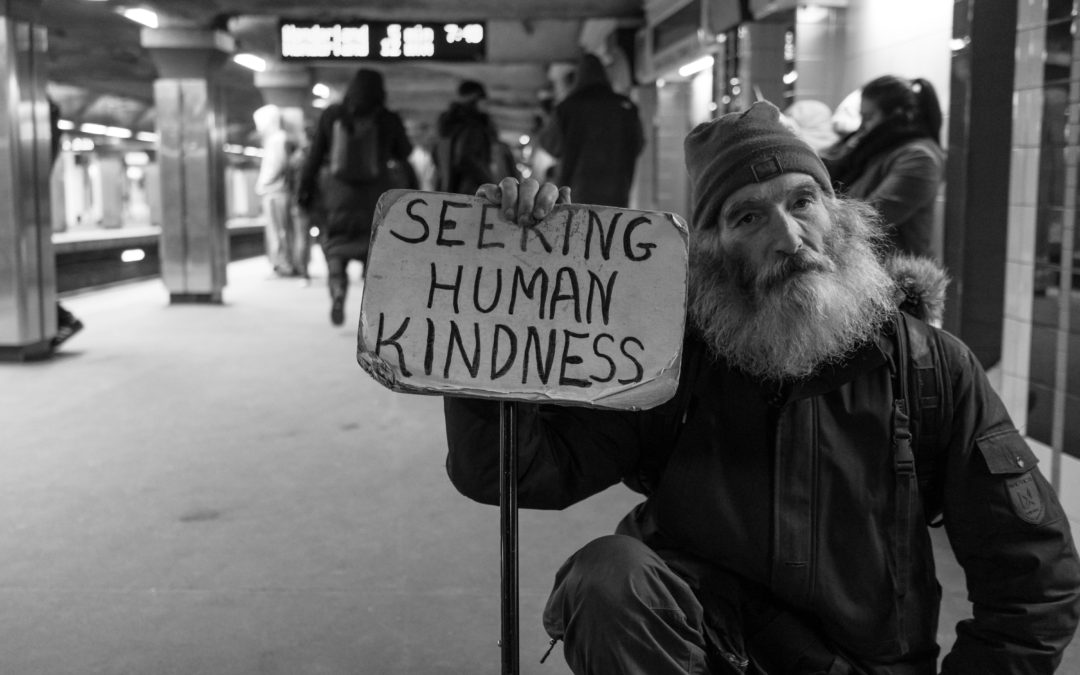- Anti-Racism Tip #8: If It Needs a Disclaimer, Don’t Say It - October 18, 2022
- On Tender Moments that Take Us By Surprise - May 18, 2022
- Finding Creative Ways to Exercise During the Pandemic - April 29, 2022
We are collectively experiencing a global crisis, and the collective grief that goes along with it. With the stress that we’re all experiencing, no one is at their best right now. As a result, I have been thinking a lot about how important it is for each of us to be extra kind with our words, our tone, and our actions right now.
We have all had those moments when we have seen an email that could have been more kindly and carefully crafted. Or when a family member, friend or colleague says something and we react defensively even though the comment may have been quite benign. Well…our reactions to these normal moments of everyday human interaction are magnified because of the stress we’re carrying collectively right now.
So I thought I would share six tips I have been finding helpful in my own life that I hope may be helpful for you as well:
- If you don’t have something nice to say, don’t say anything at all.
- Mind your tone.
- Take extra care with your body language and actions.
- Listen empathetically and refrain from offering advice.
- Be gracious and kind to others.
- Be kind and forgiving to yourself.
- Learn to apologize effectively – then take a deep breath and do it.
Tip #1: If you don’t have something nice to say, don’t say anything at all.
This saying has been around for a long time and has been attributed to many different people – Buddha, Socrates, the Prophet Muhammad and many others. The staying power of this idea is a testament to its value. During this global pandemic, while spending more time than ever with my family, I find myself saying this, particularly to my kids, more than ever before.
This idea of choosing not to say things that are critical, potentially hurtful or could push people’s buttons unnecessarily is closely related to the framework of asking yourself before you speak if what you are going to say is true, kind, necessary and helpful. And both of these cautions are even more important during this time of heightened stress.
When I was a pre-teen, I remember a particularly hectic night when my Mom was rushing around after work to get dinner on the table and my Dad and all of us kids were helping in the kitchen as well. Everyone had left the kitchen except my Dad and I and my Mom had inadvertently left the stovetop burner on. My Dad walked over to the stove and I watched him pause as he seemed to consider whether to say something to my Mom. Instead, he just turned the burner off and we went into the dining room to enjoy a nice family dinner. In that moment, choosing not to mention my Mom’s oversight during a stressful time was an intentional act of kindness and love. That memory is seared into my brain as a vivid illustration that sometimes not saying anything is the best and kindest thing to do.
Tip #2: Mind your tone.
In our house we spend a lot of time talking about tone. We emphasize the importance of a kind tone and not speaking sharply to one another, particularly when it’s not merited. We attempt to kindly point out how what was said may be coming across to others differently than intended because of tone. Even when words are benign, the tone we choose can create conflict or lead to more harmony. As a result, making an effort to carefully regulate our tone is very important – all the time but particularly during the pandemic.
Tip #3: Take extra care with your body language.
Even our body language and actions can be taken as criticism. Eye rolling, sighing, stomping around, and our facial expressions can all communicate negative messages to those we love and interact with. At this time, it can be hard not to communicate our frustration and disappointment. In recognition of the difficult time we’re all having, it’s important to be deliberate about how we are communicating through our actions and body language to our family, friends and colleagues.
To be clear, I’m not advocating suppressing or not expressing our genuine emotions to those closest to us. Rather, I’m suggesting that we take care not to use body language or actions that may create misunderstandings or unnecessary tensions. We need to be more careful than ever to avoid taking out our frustrations about the pandemic or other stressors on those closest to us.
Tip #4: Listen empathically and refrain from offering advice.
There’s a lot going on right now for everyone. At times of overwhelm or of high emotion, people may just need to vent. And when people reach out to vent, they are often asking for empathy rather than advice. Sometimes in moments of overwhelm, all we want is for someone to say: “wow, that’s really hard” or “you’re doing such an amazing job with the challenges you’re facing.”
It can be hard to just listen when we’re speaking to a friend, family member, or colleague in distress. We all want to help and likely do have some great advice to share. Even in those times where you might have great advice, however, consider holding back just a little and make the effort to listen with empathy, understanding and kindness.
Tip #5: Be gracious and kind to others.
In times of high stress and anxiety, people tend to be more on edge, speak more sharply than usual, and get defensive more quickly. So let’s make an extra special effort to be kind and gracious in recognition that we’re all having difficulty navigating the tensions and worries of this time.
We need extra patience, extra kindness, extra care and thought in how we respond to others who may speak sharply or get defensive with us. Of course, this does not apply when someone is being violent or abusive towards us – protecting ourselves and our bodily, spiritual, emotional and mental integrity is always paramount. But in the course of normal interactions where someone may use sharper words or tone or be more defensive than usual, let’s do our best to be as gracious, patient, and kind as we can.
Tip #6: Be kind and forgiving to yourself.
We can often be our harshest critics. It’s important to remind ourselves that we’re doing our best even if we find ourselves responding more sharply, being more defensive, or being less patient, caring or upbeat than usual.
As my sister Rachel often reminds me: “we do our best and our best is good enough.” And so, we may need to ease up on our expectations, to carve out more time to let our minds relax and also give ourselves space and time to sink into our emotions. We need to permit ourselves to release some of our expectations of ourselves as we navigate this global crisis. We do our best and our best is good enough – this is a good mantra to take us through the pandemic.
Tip #7: Learn to apologize effectively – then take a deep breath and do it.
Finally, when circumstances merit an apology, apologize. It takes effort and courage to apologize. This is particularly so if as children we were taught that apologizing is a sign of weakness or if we had bad experiences when we did in fact apologize.
As Dr. Harriet Lerner teaches us, children learn at an early age that if they apologize they often end up getting in trouble all over again by parents or teachers. This common response provides a powerful lesson that pain is associated with apologizing. Unfortunately, as adults we often carry this painful lesson with us into our relationships. But in our failures to apologize, we leave the small or big harms to our relationships to fester as open wounds.
As a result, we need to learn how to apologize effectively and also learn to graciously accept apologies in our relationships. Learning to graciously accept an apology is especially important as parents, teachers and spouses because it reinforces the importance of apologizing and breaks the negative associations that often go along with it. For tips on how to both give and receive apologies graciously, listen (and re-listen) to Harriet Learner’s two-part interview on Brené Brown’s podcast Unlocking Us. You can also check out Harriet Lerner’s book, Why Won’t You Apologize?
Relationships require effort and care. They need to be cultivated and tended to. And right now, there’s even more of a need to be careful and tend to the relationships we have with family, friends and colleagues.
So be kind with your words, tone and actions. Be kind to yourself and to others. In so doing, we’ll not only navigate this global pandemic together but we’ll also come out on the other side stronger, kinder and more empathetic.
We would love to hear your thoughts in the comments section below.
If you liked this article, check out:


Recent Comments